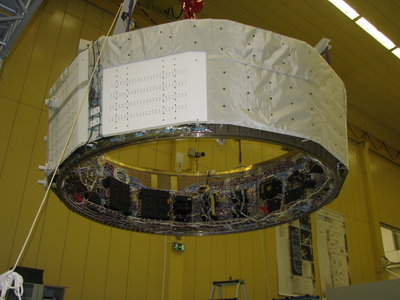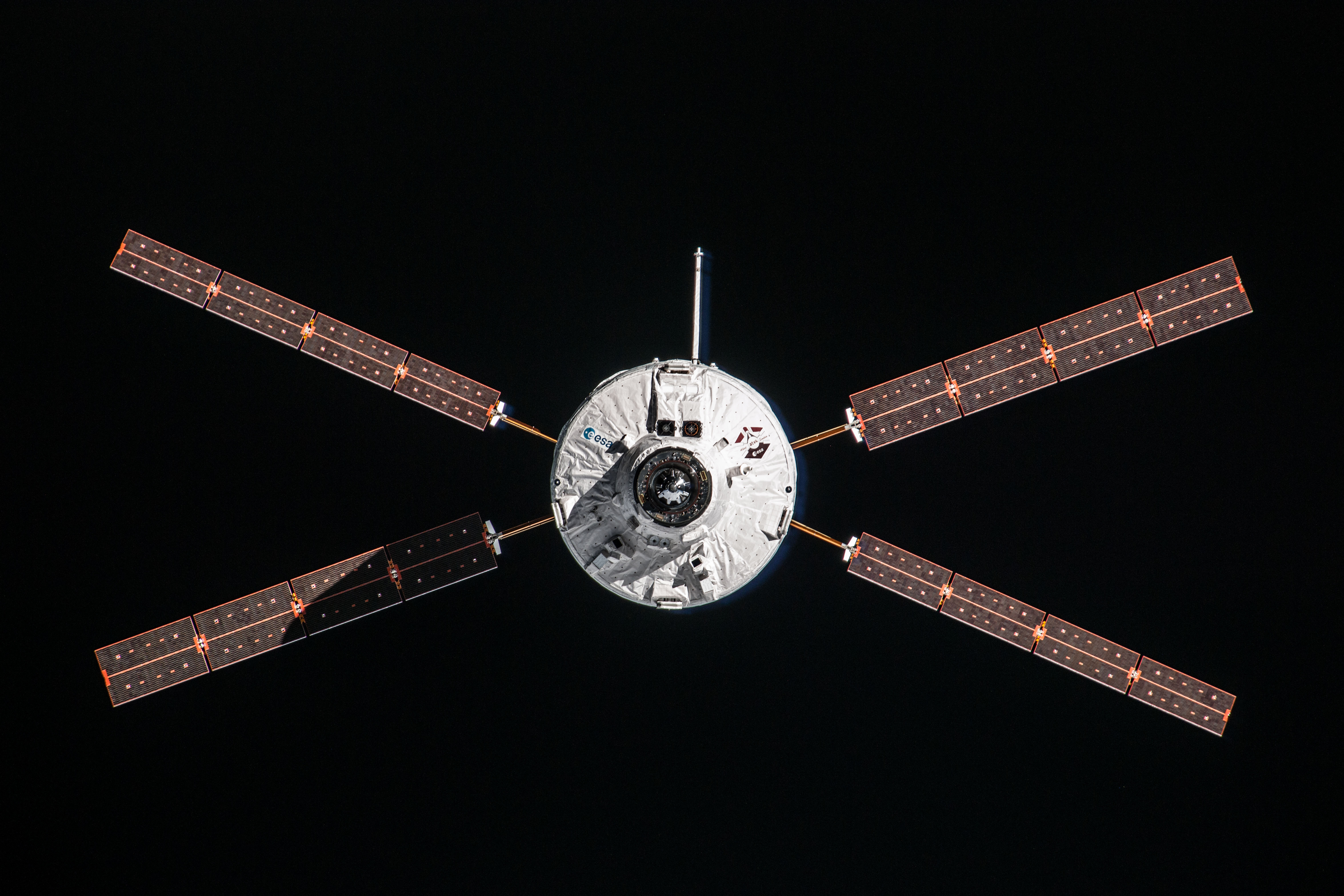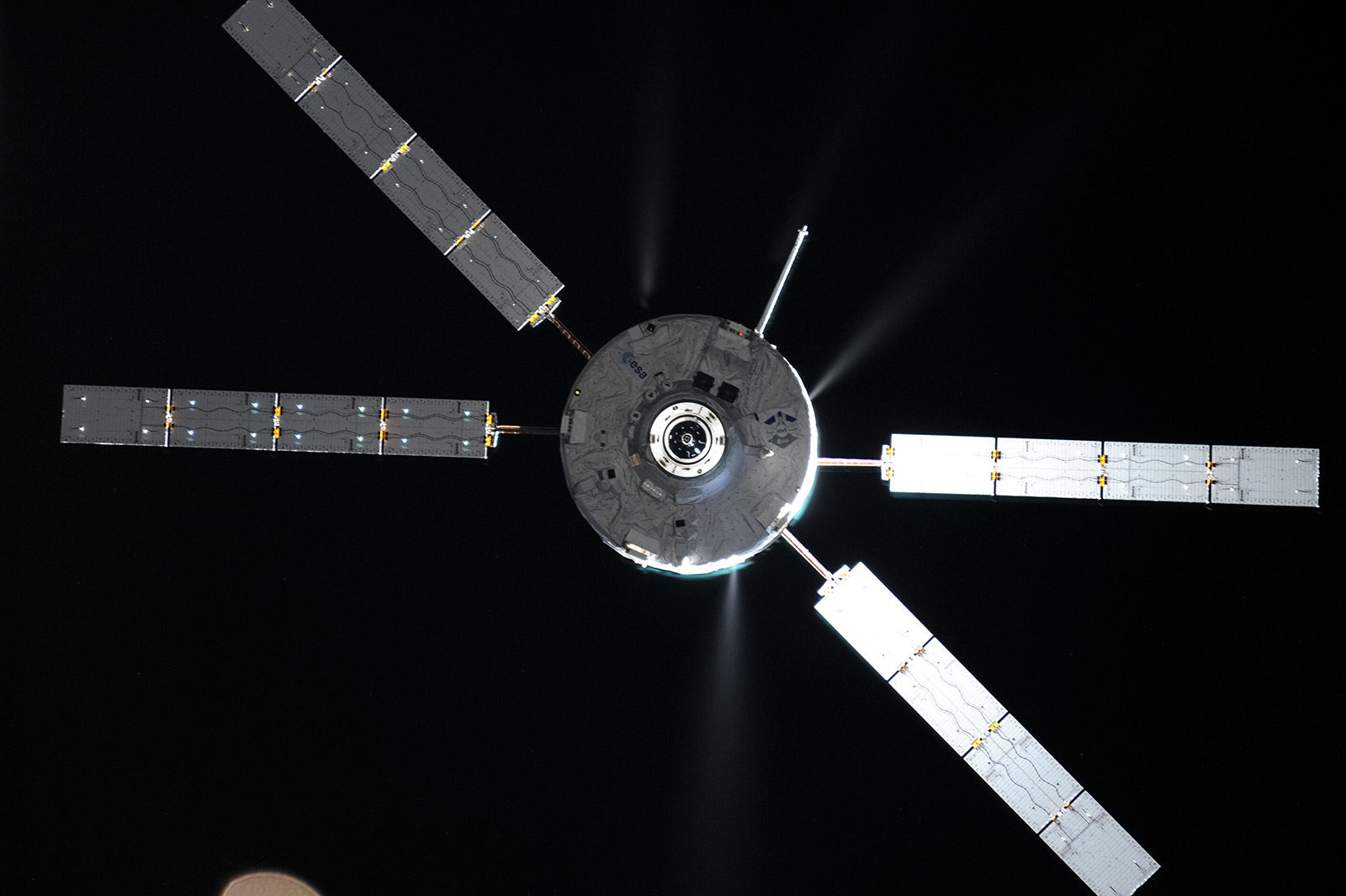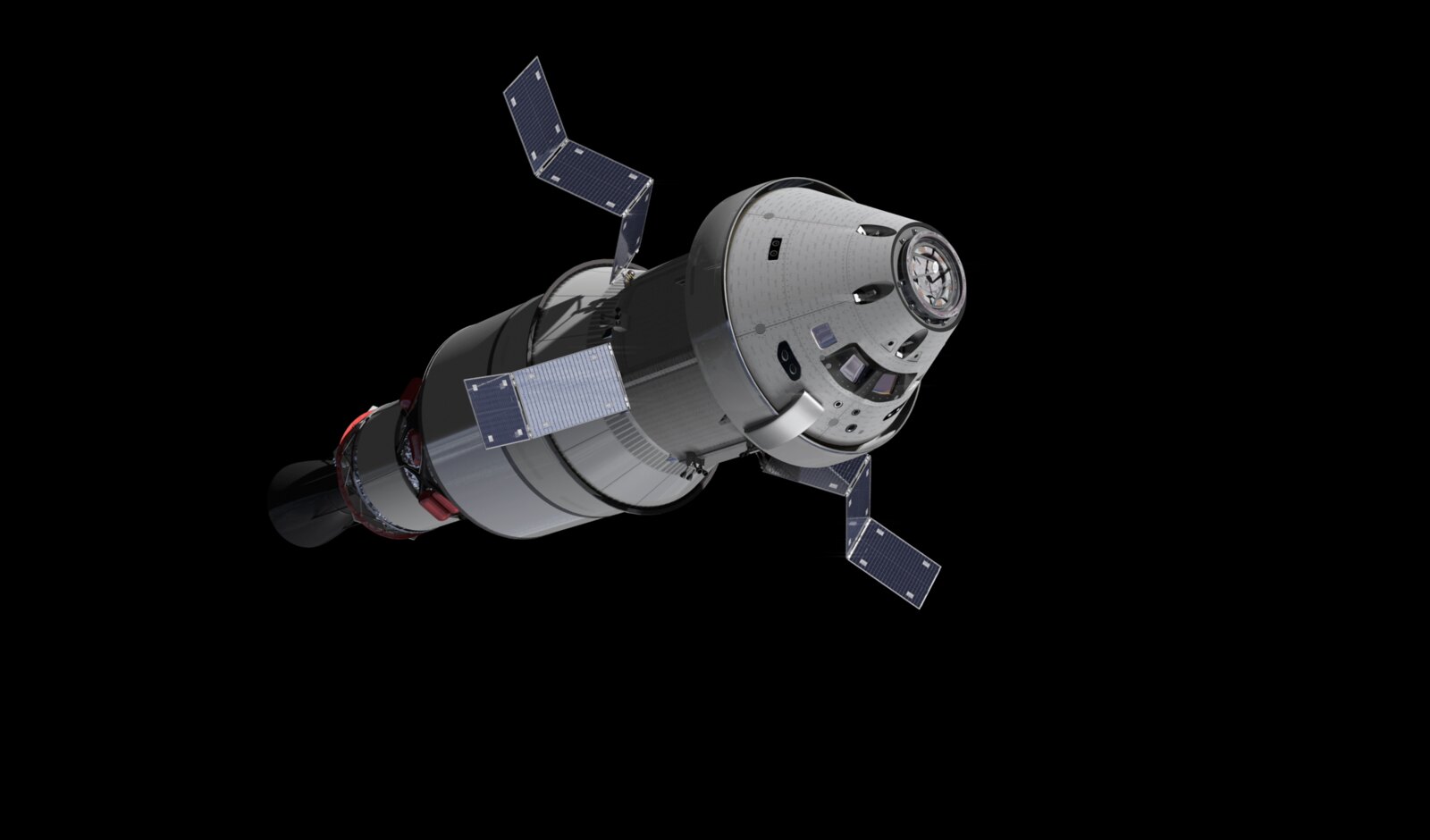To celebrate the arrival of the ATV-3 info kits in French, Italian and German we will continue our in-depth look at contributions from individual European countries. This time France will be in the spotlight.

Equipped Avionics Bay
LATelec had the daunting task of wiring the Avionics Bay, also known as ATV’s brain. With all the cables around it is clear that this is a task best left to professionals.
Sodern supplied the Star Tracker and Videometer from its SED/16 line for ATV. These instruments let ATV work out where it is and in what direction it has to go. A tried and tested component, there are over 70 of these instruments operating in space at this moment. With such widespread use of these instruments ATV Edoardo Amaldi can feel safe it will not get lost.
Many modern appliances have batteries and ATV is no different in this respect. ATV has two different types of batteries, rechargeable Nickel-Cadmium type and a lithium ‘throw-away’ type. The batteries come in useful when the Earth blocks out the sun from reaching ATV’s solar panels. As ATV spends around two thirds of its life in Earth’s shadow the batteries are not included merely as back-up. French company Saft supplied the batteries and has years of experience delivering batteries for high-tech industry.
Intespace conducts the thermal-vacuum testing of the EAB module on Edoardo Amaldi, in other words Intespace makes sure that the module can withstand the vacuum and extreme temperatures in space. Their test facilities in Toulouse and Elancourt can reproduce temperatures from – 196° C to + 145°C.
Thales Alenia Space is a multinational company that was featured in ATV: Made in Belgium. This company will undoubtedly reappear in future blog posts. In this case their site inCannes was responsible for theSolar Array Drive sub-system and mechanism. In Layman’s terms the company makes sure the power generated by the solar panels reaches ATV’s power system as well as making sure the solar panels rotate to face the sun.
Another important company is Astrium. As Astrium is the prime contractor for ATV, it has developed many of ATV’s systems. Astrium’s sites that worked on ATV span the whole of France: Toulouse, Les Mureaux, Bordeaux, Elancourt. The number of components developed is too long to go into detail in this post but a simple list gives an idea of the complexity of an ATV and the involvement of Astrium France in the making of Edoardo Amaldi. The four sites have worked on: system engineering; flight software; test facilities; the accelerometer, sun sensor and gyro assembly; the command and monitoring unit; pressurant tanks; proximity communication equipment.
All the preparations made by these companies would be of no use without the ATV Control Centre hosted at the French Space agency site CNES in Toulouse. Frenchman Jean-Michel Bois is overseeing the control centre as head of ATV Operations Division, amongst many other French colleagues working on ATV.

 Automated Transfer Vehicle page
Automated Transfer Vehicle page ATV blog archive
ATV blog archive
 NASA Orion page
NASA Orion page NASA Artemis
NASA Artemis Airbus Orion page
Airbus Orion page
Discussion: no comments